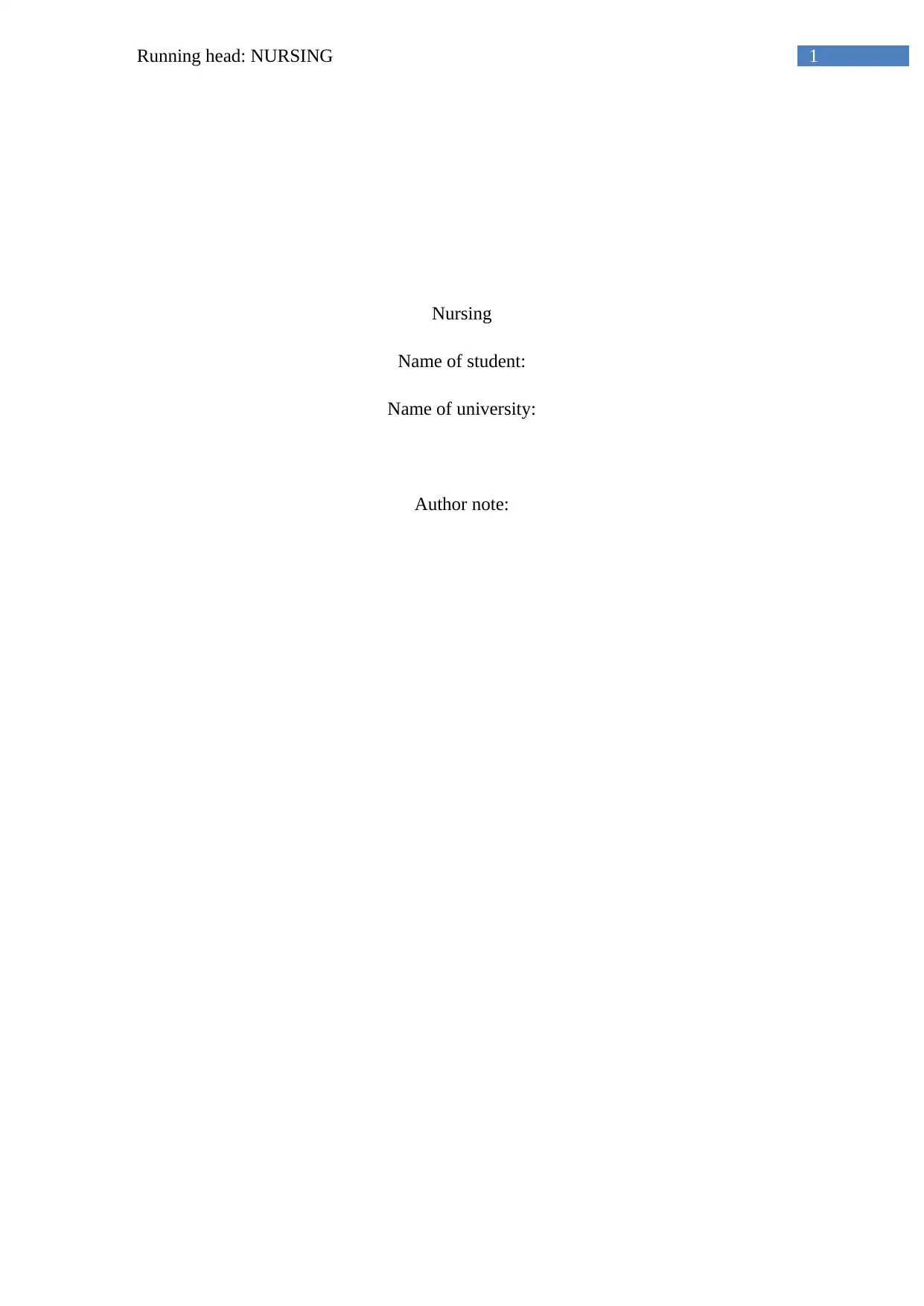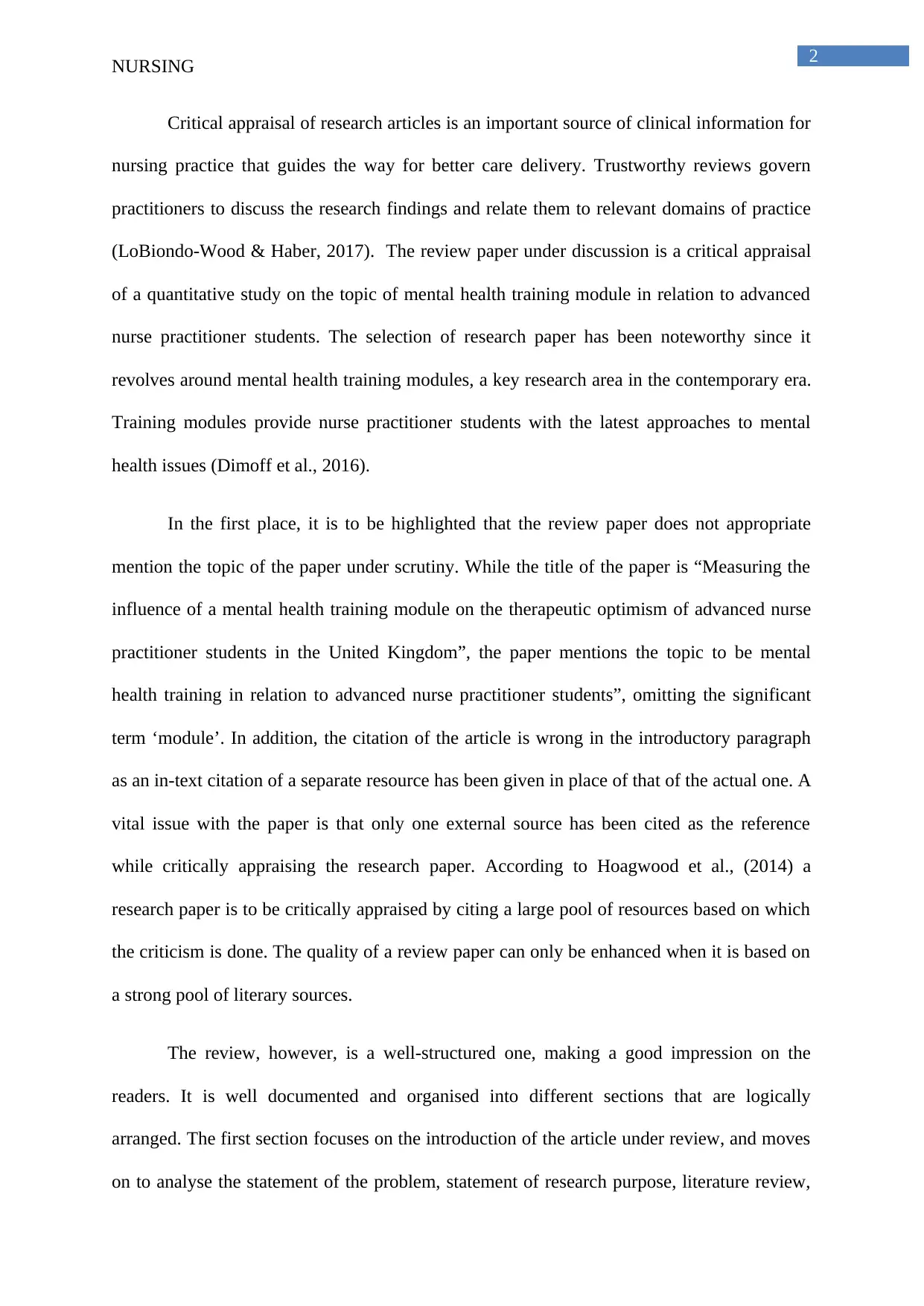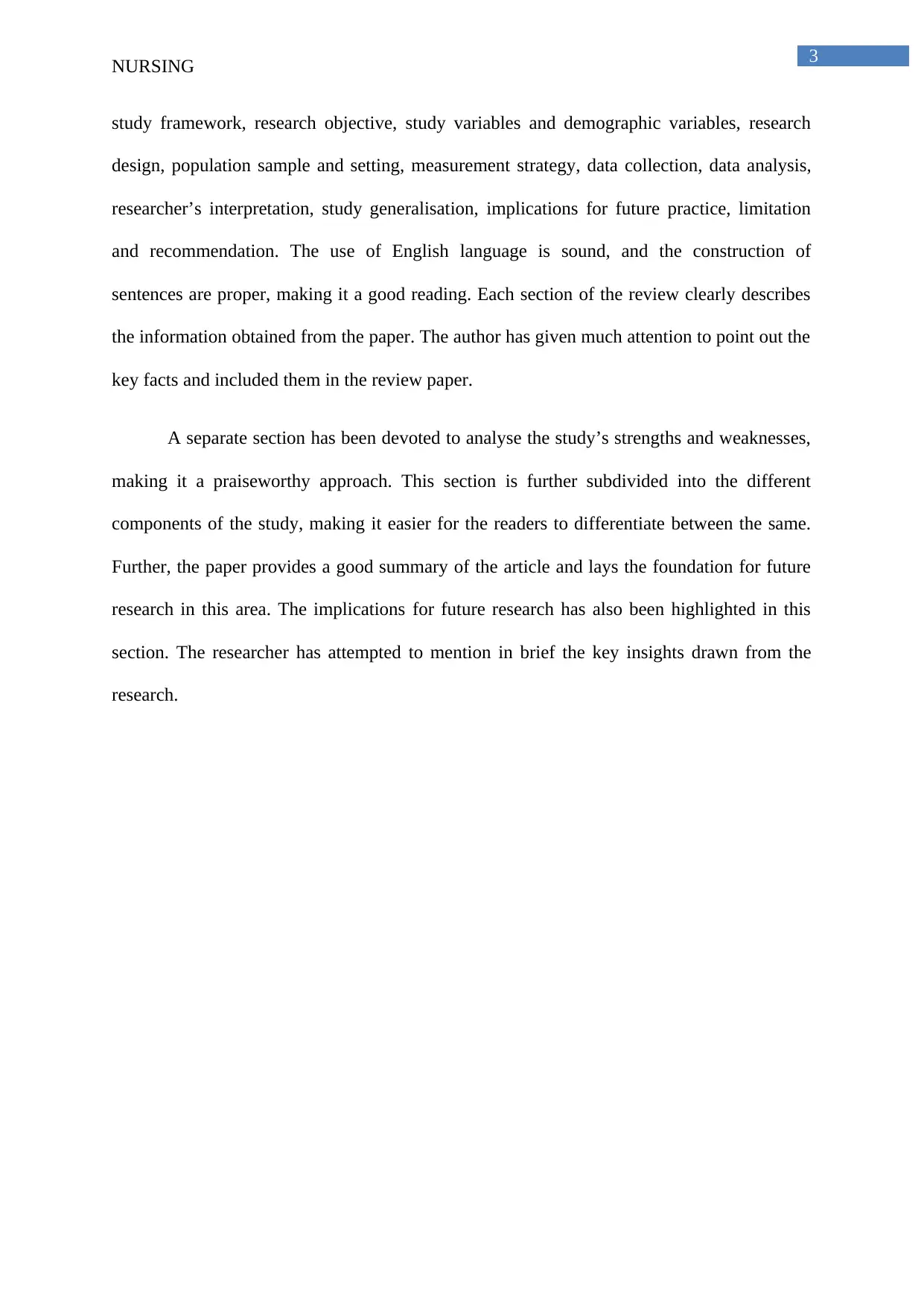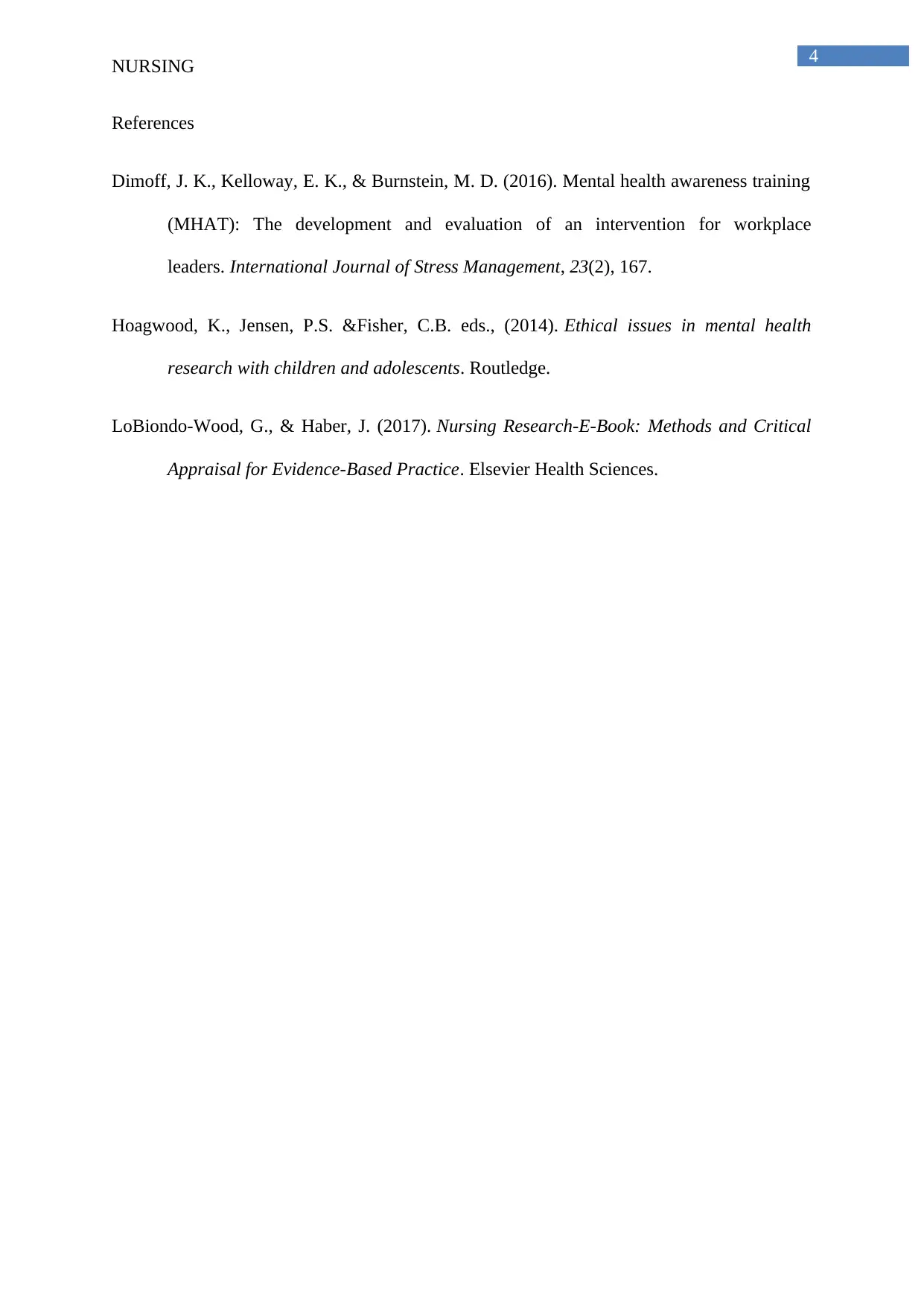University Nursing Report: Mental Health Training Module Appraisal
VerifiedAdded on 2021/04/17
|4
|718
|124
Report
AI Summary
This report critically appraises a quantitative study on a mental health training module for advanced nurse practitioner students. The review highlights issues with the original paper's title, citation accuracy, and limited external references. Despite these shortcomings, the report praises the well-structured and organized format, which includes detailed sections on the problem statement, research objectives, methodology, and implications. The reviewer effectively analyzes the study's strengths and weaknesses, providing a clear summary and laying the groundwork for future research. The report emphasizes the importance of critical appraisal in nursing practice, guiding practitioners to discuss research findings and relate them to practice domains. The use of a single external source is noted as a weakness, contrasting with the need for a broader literary base for robust critical analysis, as highlighted by Hoagwood et al. (2014). The report's strengths include its clear language, logical structure, and detailed analysis of the research components. The implications for future research are also highlighted, making this a useful resource for students.
1 out of 4











![[object Object]](/_next/static/media/star-bottom.7253800d.svg)